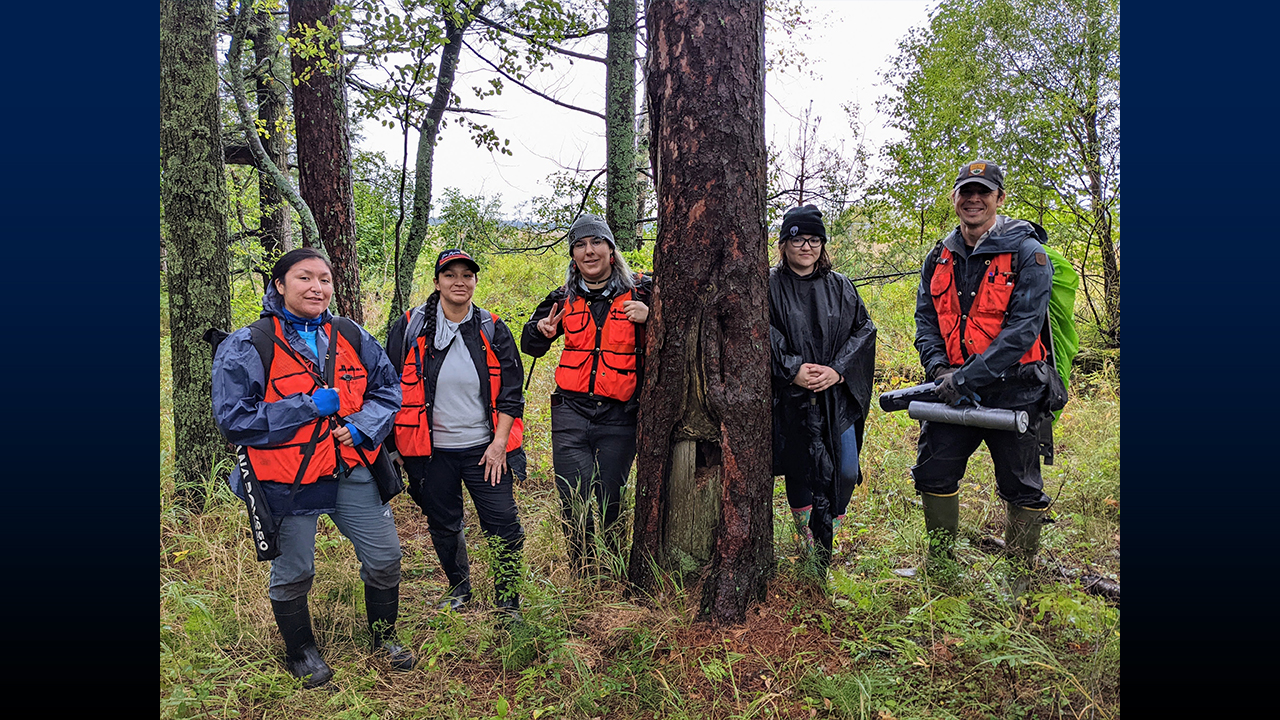
Dr. Evan Larson, professor of environmental sciences and society at the University of Wisconsin-Platteville, is the lead author of a significant publication in the “Proceedings of the National Academy of Sciences,” one of the world’s leading scientific journals. His Indigenous and non-Indigenous co-authors (Nisogaabokwe Melonee Montano, Emily Lockling, Ashla Ojibway, Mocha Reynolds, Valerie Ross Zhaawendaagozikwe, Lane Johnson, Kurt Kipfmueller, Michael J. Dockry, Vern Northrup, Jeff Savage and Robin Wall Kimmerer) include undergraduate students from Fond du Lac Tribal and Community College, elders from the Fond du Lac Band of Lake Superior Ojibwe, tribal leaders from Red Cliff, and two members of the Citizen Potawatomi Band, including the preeminent author Robin Kimmerer.
The piece, “Indigenous Fire Stewardship Shaped North American Great Lakes Forests,” weaves together Traditional Ecological Knowledge (TEK) and Western Science to document how Anishinaabe fire stewardship maintained culturally and ecologically significant pine barrens along the shores of Lake Superior. Using a combination of oral histories, archaeological evidence and centuries of tree-ring data, the research tells a more complete and just story of human-land relationships in what is now northern Wisconsin and Minnesota.
According to Larson, “One of the central ideas guiding the work of this amazing team of collaborators is healing – among people, cultures and the land. A truthful reckoning of the past is fundamentally important to do this, and bringing together Indigenous and Western ways of knowing is necessary to engage the diverse communities impacted by this work. The stories of people, pines and fire that are at the heart of the research shared in this paper provide both a foundation and guidance for how we can move forward in these efforts in a good way while helping to create a more sustainable and just world.”
The study highlights how colonial fire suppression policies disrupted resilient ecosystems and makes the case for reintroducing cultural fire as part of a broader movement toward climate resilience, ecological restoration and Indigenous sovereignty. Rooted in place-based research and mutual respect, this project reflects UW-Platteville’s commitment to community-engaged scholarship and environmental stewardship.
“This is the kind of publication that it takes a career to build toward,” says Dr. Travis Nelson, dean of the College of Liberal Arts and Education. “It is a testament to the community of scholars and leaders that Dr. Larson has helped to build and to that community’s commitment to collaborative and justice-centered scientific research.”
The associate director for research at the Wisconsin Sea Grant and Water Resources Institutes, Dr. Jennifer Hauxwell, also speaks very highly of the project and resulting publication.
“Wisconsin Sea Grant strives to advance good science to support our Great Lakes communities. But we all know that it takes science and local knowledge plus deep community engagement to truly make a difference. This project epitomizes the way that researchers and communities can learn together and use that knowledge to inform future decisions about how best to care for the land and waters of Wisconsin and the Great Lakes region.”
The impact of this work has been immediate, as an emergent collaboration among the Fond du Lac Band of Lake Superior Chippewa, City of Superior, Lake Superior National Estuarine Research Reserve, and The Nature Conservancy plans to return fire to Wisconsin Point this September in a significant act of ecological and cultural restoration.
The full PNAS article is freely available here: www.pnas.org/doi/10.1073/pnas.2500024122. Information and updates about the Wisconsin Point Fire Restoration effort are available here: www.superiorwi.gov/1299/Wisconsin-Point-Fire-Restoration